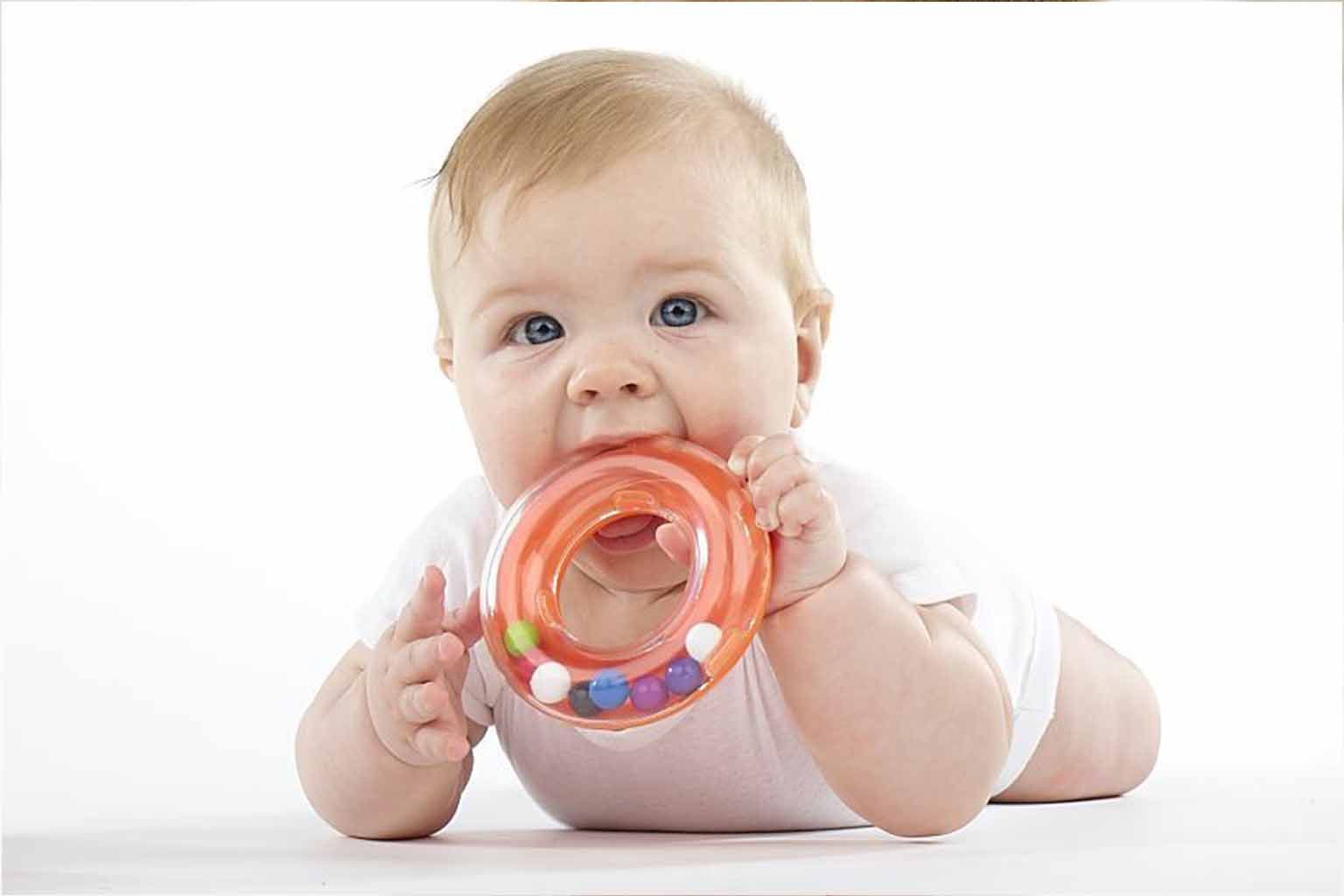Does your baby put everything in the mouth? From toys to clothes to food to spoons, whatever comes in their hand, goes in their mouth. It is quite normal and also a sign of their growing interest in the world around them. It is the way they explore everything around them. Known as mouthing, it is the way by which your baby is mastering his/her hand movements and he/she desires to grab everything around and wants to investigate further.
Why do Babies Put Everything in Their Mouths?
Well, it is not just a usual act that babies do but there is scientific reasoning behind it. When babies put things in mouth, they are trying to explore the object with their mouth, lips, or tongue.
This begins when your child develops a grip and starts to hold things. By putting things in the mouth they desire to know its shape, texture, and shape. Babies are born with certain reflexes.
A reflex is a muscle reaction that happens automatically in response to stimulation. The two common reflexes related to mouthing are:
- Rooting reflex: This reflex is seen when the baby’s cheek is stroked. The baby turns towards the side where he/she was stroked and exhibits sucking actions.
- Suck reflex: The baby makes a sucking motion when they are around the mouth. Hence, sucking and rooting are the scientific phenomena that cause the baby to put everything in the mouth during infancy.
Other attributes of mouthing in babies are:
- Mouthing is a natural phenomenon and a great exercise for the mouth’s muscles. It makes the facial muscles strong for actions like eating and speaking. Mouthing helps a baby to establish a harmonious movement between the lips, tongue, jaw, and cheeks.
- Another reason for teething is sore and irritated gums. Babies tend to put different things in their mouths to relax the irritated mouth.
- Some studies also suggest that mouthing develops speech development in babies.
Possible risks with Mouthing
Mouthing is natural in babies. But we need to be careful about what our babies are putting in mouths. There are a few possible risks with mouthing:
- Babies can choke or injure themselves: When your toddler is crawling around and picking everything that comes in the way and puts in their mouths. It is important to keep an eye on them when they do this. Small things like, toy parts, paper, and anything that is lying on the floor.
Babies can choke their mouths with those small things. Rough edges objects are also very dangerous for babies to put in the mouth. They can hurt themselves. Make sure you keep your house floor clear from all of that stuff and also always keep an eye on your baby. - Infections: Mouthing cannot be controlled in babies so they tend to lick everything, the floor, and things lying on the floor. This makes babies susceptible to infections. It is very important to keep the house clean and hygienic.
Make sure you clean the floor, baby’s toys, and every surface that baby touches. You don’t want your baby to catch any infection and fall ill. Take special care with the house cleaning when you have a baby in the house.
When do Babies Start Mouthing?
Babies start mouthing as early as 7 to 12 months. By the age of two, they start to use their fingers to explore things around them. By the time a baby reaches the age of three, he/she stops putting things in the mouth. It all comes natural and cannot/should not be controlled.
Some babies develop a habit of finger or thumb sucking which needs to be controlled. Also, babies with mouthing habits beyond four years of age might need some corrective measures or habit breaking appliances.
Precautions to take when your Baby has a Mouthing Habit
Here are some precautionary measures that must be taken to ensure your baby remains safe during his mouthing age:
- Clear out small objects: To ensure that your baby is not putting any small object in his/her mouth that will choke him, clear all the small objects from the house. Mini showpieces, mini toys, pens, etc. Keep everything in drawers and not in an open area for your baby to find it.
- Rely on positive reinforcement: It is important for parents to stay positive about mouthing. Do not yell at your baby for putting any unsuitable object in the mouth, instead replace it with a soft object. As much as it is not a safe habit, it is also important for them to indulge in mouthing at a growing age. As a parent, you must keep a check on the surroundings and let your baby explore everything around.
- Practice ‘No’: When your baby is a little mature for mouthing, practice saying no to him/her about mouthing. he/she must stop at your command. Teach them what no means and make sure your instructions are gentle and in a playful manner and not let your baby cry
- Teethers: Babies tend to put things in their mouths while teething. It is best to give them a teether ring at the time. It will give your bay a relief from teething irritation and pain.
 Mouthing
MouthingThe mouthing phase lasts a little while that just requires a little of your special attention on your baby, it is an important phase and you also need to make yourself understand that a few germs particles and dust will not make your baby sick. Enjoy this special phase of your baby with not a very obsessive germ-phobic attitude and let things flow.
Also Read: Why Do Babies Put Their Hand In Mouth?

